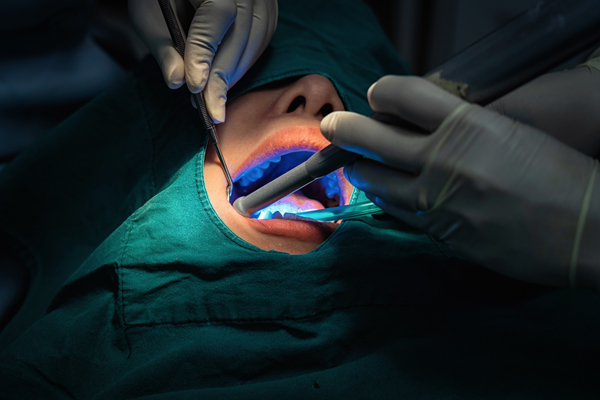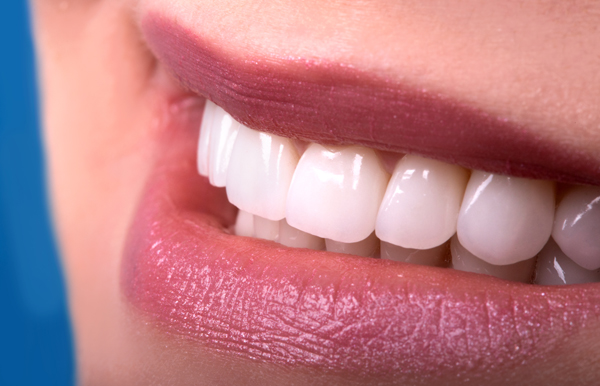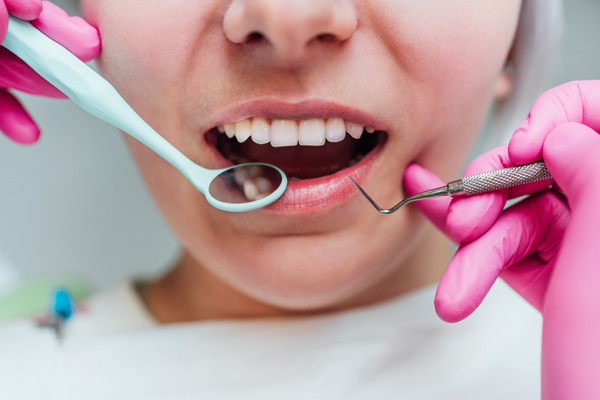How Dental Bonding Can Strengthen Your Teeth

Many patients have dental bonding procedures for cosmetic reasons. However, the treatment is also sometimes used to strengthen teeth that are chipped, cracked, decayed, or have exposed roots.
Dental bonding
Dental bonding is done with a composite resin that a dentist has color-matched to the natural teeth. The dentist roughens the tooth surface and then applies a conditioning liquid before applying the composite resin material to the surface of one or more teeth. The dentist completes the process by shaping or molding the tooth and then hardening the material with ultraviolet light. The dentist may do more shaping after the material has hardened to achieve the desired appearance.
Uses for dental bonding
Dental bonding can be used to treat several conditions:
- Chipped teeth
- Discolored teeth
- Spaces between teeth
- Misshapen teeth
- Teeth that appear undesirably short
- Alternative to amalgam fillings
- Protection for exposed tooth roots
Benefits of dental bonding
Dental bonding procedures can usually be completed in one visit. The procedure requires less enamel to be removed from the teeth than alternative procedures, such as veneers and crowns. When used to fill cavities, it strengthens the tooth while also providing a more natural appearance than metallic fillings.
Risks of dental bonding
The resin used in dental bonding procedures is not as strong as healthy natural teeth or the materials used to manufacture other restorations, such as veneers, crowns, and fillings. It may chip or break. Patients can reduce these risks with proper care. Dentists often mitigate the risk of damage by reserving the treatment for teeth that experience low bite pressure.
Care for bonded teeth
The material used for dental bonding can stain. Avoiding substances that are prone to causing stains, such as coffee, tea, wine, and cigarette smoke, can reduce the risk of stains occurring. An oral care routine that includes twice-daily brushing, flossing once per day, and regular dental visits can extend the life of dental bonding.
Additionally, patients are advised to avoid chewing on hard objects, such as ice, pens, fingernails, nuts, and hard candy. Wearing a mouthguard when playing sports can protect against impact damage. A nightguard can prevent damage from teeth grinding during sleep. Rinsing with water after eating acidic foods can also be protective.
Lifespan of dental bonding materials
Most bonding materials need to be replaced or touched up after three to 10 years. However, the length of time depends on how well the patient cares for their teeth and the extent of the bonding that was done.
Conclusion
Dental bonding is a useful dental treatment for simple repairs of damaged teeth in parts of the mouth that experience low bite pressure. Due to the chance that the material could chip or break, the procedure is recommended for patients who are willing to take measures to protect their dental work from stains and other types of damage. Patients who are unwilling or unable to modify their lifestyle to protect the dental work may want to consider alternative treatments.
Request an appointment here: https://www.westerniowadental.com or call Western Iowa Dental at (712) 325-1544 for an appointment in our Council Bluffs office.
Check out what others are saying about our dental services on Yelp: Dental Bonding in Council Bluffs, IA.
Related Posts
Today, with increasing importance placed on dental aesthetics, there are many reasons why one may consider a trip to the cosmetic dentist. The desire for good-looking teeth is important as beautiful smiles are known to contribute to a person's overall well-being and positive self-image. There are many different avenues for fixing an imperfect smile. In…
Many patients want to improve their smiles — this is where a cosmetic dentist can help. Read on to learn how cosmetic dentistry can improve the look of your smile. Cosmetic dentistry focuses on the quality of the smile, while also addressing oral health and functional concerns as necessary.The primary focus of cosmetic dentistry is…
Cosmetic dental services can help create positive changes to your teeth, improving the aesthetics of your smile. However, cosmetic dental services can also address certain issues that negatively impact your teeth and sometimes improve their function.Many patients have one or more issues that negatively impact their teeth. Our dentist can help address these. Treatments that…
Missing teeth can impact the appearance of the smile and make it difficult to speak, chew, and eat. Dental implant restoration is a method of replacing missing teeth that can improve the appearance of a patient's smile and restore the function of the teeth.Implant restoration involves surgically placing artificial tooth roots into the jaw of…


